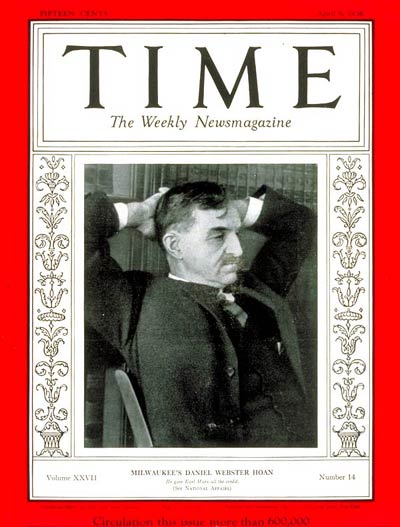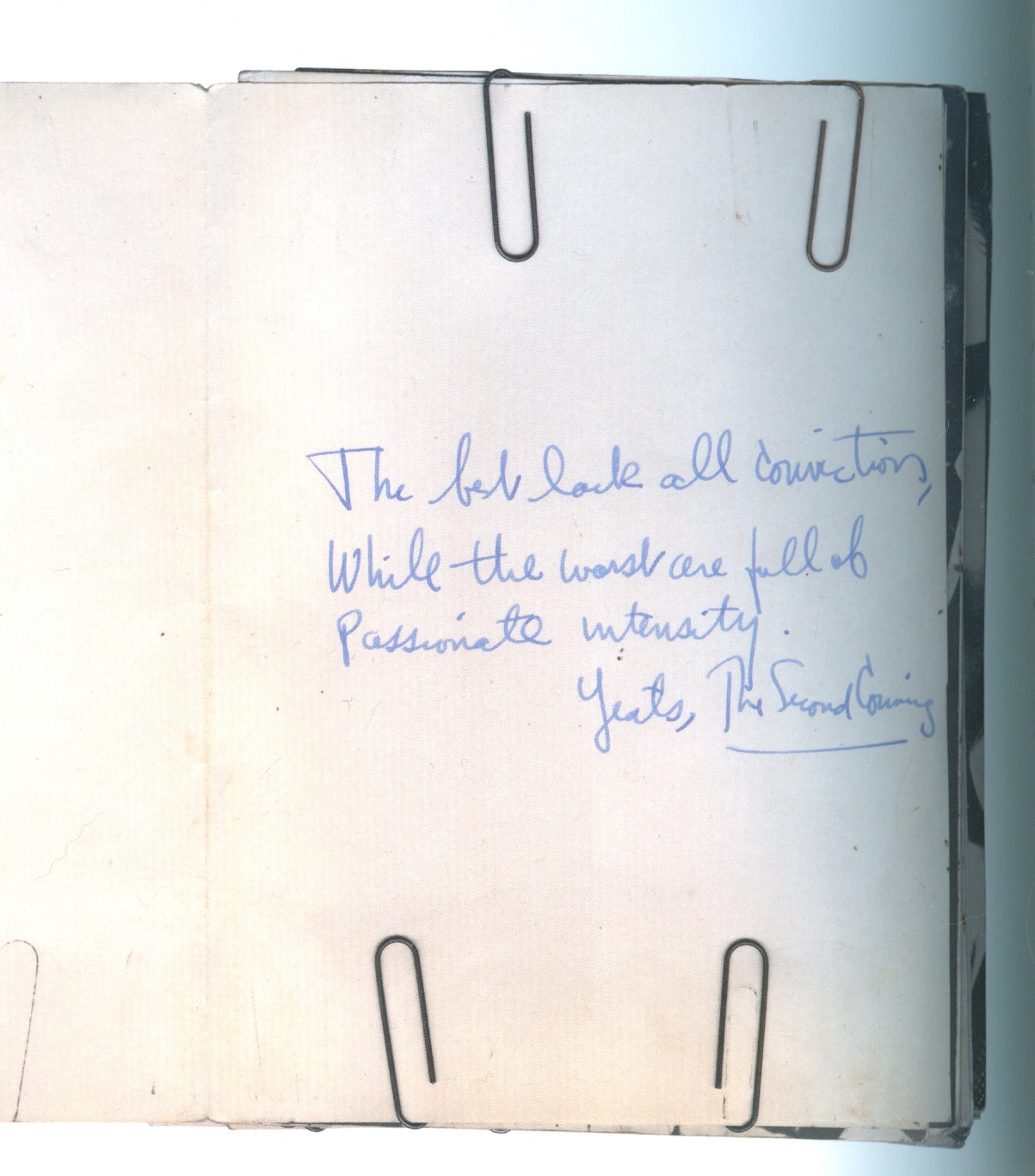
A mock-up page from an introductory booklet to a reissue of the 1964 book “Nothing Personal,” a collaboration between photographer Richard Avedon and writer James Baldwin. Avedon evidently wrote down the W.B. Yeats quote as being important to the book’s thematics. Courtesy Richard Avedon Foundation and Taschen Books.
Funny how swiftly dark clouds, even from decades ago, can ambush a celebration.
My sunny Sunday birthday on July 1 ended with a walk in the park, and very real rainmakers eliciting a thundering downpour and sweeping winds amid a tornado warning. The storm broke my gal pal Ann Peterson’s umbrella. Earlier, she’d given me a luminous gift that soon engulfed me in the ominous vision of perhaps the most famous poem of W.B. Yeats, arguably the greatest poet of the 20th century. The gift was a reissue of the 1964 book collaboration between photographer Richard Avedon and writer James Baldwin, titled Nothing Personal. Therein I soon encountered a familiar quote from Yeats’ “The Second Coming” (see image at top), handwritten by Avedon on a publisher’s mock-up page, for the original edition.
Avedon’s mock-up photo comes from the new edition’s accompanying booklet, which includes an introductory essay by Hilton Als, the 2017 Pulitzer Prize winner for criticism, and previously unpublished photos by Avedon.
Let me contextualize the line (bold-faced below) from “The Second Coming,” one of the most-referenced passages in modern poetry:
…Things fall apart; the centre cannot hold; Mere anarchy is loosed upon the world
The blood-dimmed tide is loosed, and everywhere
The ceremony of innocence is drowned;
The best lack all conviction, while the worst
Are full of passionate intensity.
This whole momentous passage calls out to our times with shuddering power, even if Yeats, like many visionary and prescient writers, wrote it long ago, in 1921.
“The Second Coming” closes with another famous passage, which warns of a revelatory vision that the most religious among us would’ve never hoped for – at least back then. Rather than Christ finally returning to redeem the wayward, wicked world, Yeats detects a monstrous creature, “a shape with lion body and the head of a man, / A gaze blank and pitiless as the sun, / Is moving its slow thighs… And what rough beast, its hour come round at last,/ Slouches toward Bethlehem to be born?”
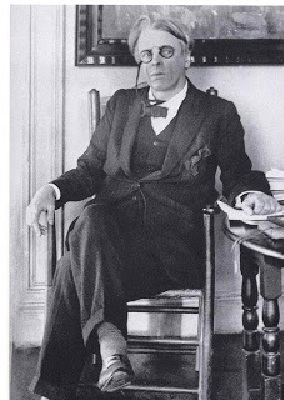
Irish poet W.B. Yeats in 1923, two years after he published “The Second Coming”,” and shortly after he won the Nobel Prize for literature, after six years of nominations. Courtesy The New York Times
The passage has resonated variously over the ensuing centuries. In the Irish poet’s time, civilization struggled to piece the world order back together after The Great War, an unprecedented world catastrophe, a complex failing of humanity. Yet now, many have commented on the “chaos” of today’s international affairs, especially as exacerbated by Brexit and Trumpism, which has threatened not only international relations but the very democracy our nation was founded on, and functions under.
And that “rough beast” slouching toward Bethlehem, a hybrid of a lion and a man, now seems to evoke the visage of Donald Trump, with his huge, pseudo-golden orange mane and face, and his roaring Twitter posts and campaign-style speeches, always speaking strictly to this cowardly lion’s pride – his narcissism and his avid base – never as a leader of all America. A deep segment of his strangely faithful base is a strain of ostensible Bethlehem-worshippers, white Evangelical Christians. This literary comparison may risk lending a dark grandiosity to Trump’s often-fumbling, crude, instinctive behavior and very risky “policy.” Yes, Trump’s easy to frame as an unintentionally self-styled running joke.

Courtesy youtube.com (This Is NOT a Richard Avedon photo)
But the grim reaper may laugh deepest, and last. He has again, most recently in the massacre of five journalists in their newsroom in Annapolis, Maryland. My blood still runs cold. I’ve spent most of my professional career in similar newsrooms. The rough beast, of course, has many guises, beyond Trump, and must be fed. More real dangers and tragedies loom, as momentous as Yeats’ poem suggests.
Have we had any single greater threat to world order, natural alliances and the nation’s democracy, since World War II? All the worse, it seems, for coming from within our nation. This circles us back to the urgency of Yeats’ gloomy assertion about his fellow contemporaries. Accordingly, I want to focus especially on the quote: “The best lack all conviction, while the worst are full of passionate intensity.”
That’s the sentence that Richard Avedon wrote down in his Nothing Personal mockup for his publisher, partly I suspect, because the Civil Rights Movement and the Anti-Vietnam War Movement had only begun gaining steam in 1963 or 1964, or thereabouts, when he actually scribbled down the words. 1
Cut to our times: Consider the whole dynamic of, first, Brexit and then the 2016 presidential election, and perhaps of even liberalism-versus-neo-liberalism-versus-conservatism-versus-inchoate angry, emotional populism. That complex scenario has played out over the last several decades, and brought us to our perilous position.
I’ve seen at least one interpreter some years ago read Yeats’ “the best ” as being people of intellect and reason, and “the worst” being those who respond mainly with emotion.
Can we now flesh that out to a “passionate intensity” driven by pain, frustration or fear – and worse, a certain percentage of people afflicted with misogyny, racism and xenophobia?
As for “the best” lacking all conviction, some pundits and writers have observed that certain recently-disavowed or disenchanted Republicans – like strategist Steve Schmidt or political TV host Michelle Wallace – have proven among the most passionate protesters of Pres. Trump’s obscenities, compulsive hypocrisy, and often-willy-nilly executive orders, and eloquent defenders of basic American values in a democracy at dire risk. Schmidt almost invariably also provides pointed historical perspective when he speaks.
Perhaps, as Republicans, they know how to be passionate when they really need to be, and rational and pragmatic when that’s needed. Plus, I suspect they know the most consistently effective political strategy combines those seemingly polar qualities.
I don’t really know the politics of pundit Malcolm Nance, because he’s a well-guarded professional intelligence person. But the author of The Plot to Hack America has proven one of the most urgent, truly knowledgeable and lucid voices regarding the well-documented Russian undermining of our political system in 2016, and of democratic systems in Europe, and for seeing the big, ominous picture behind all that.
What we have lacked is passionate conviction among a certain spectrum of liberals, Democrats and Independents, who may see what is going wrong. A certain segment of Independents, by nature (not the Bernie Sanders-type of independent), may tend to equivocation. However, times demand that they take a strong stand, speak out, and act, for the sake of their imperiled country.
But a too-broad swath of liberals, Democrats and would-be Dems have, I think, been most lacking in recent times. Not that we don’t have a substantial, pulsing core of active people in that swath, especially swelling among millennials. But there are reasons why the Democrats bear some responsibility for why Republicans control all three branches of federal government, and too many state governments, even though they are by far the minority party in terms of popular affiliation and apparent support.
And yet the Dems/liberals too often spend excess energy squabbling amongst themselves and, when facing the real opposition, acting all-too-civilly, playing mainly within the rules, in between the lines. Muting potential conviction, passion, and the sharpest, toughest strategy. In football terms, Republicans usually control the line of scrimmage, often illegally or unethically – the key to winning the game. Liberal Mister Nice Guy tactics have to change now, starting with the encroaching Supreme Court vacancy, and beyond.
(Ironically, among down-in-the-dirt Trump’s most gag-inducing platitudes of praise is, “He was very nice to me,” part of the cognitive dissonance of his bizarre personality.)
Meanwhile, Republicans constantly shift the goalposts, cheat the system (as in Mitch McConnell’s hijacking of Pres. Obama’s selection for the Supreme Court), and follow in meek or overt lock-step with Trump, who lies incessantly to obscure truth and reality and further rile his base, and pervert our institutions and democracy.
This situation brings to mind yet another line from Yeats’ great poem, “The falcon cannot hear the falconer.” In our context, there is a disconnect between “the falconer” – individuals who care but flirt with cynicism, or feel helpless, or disenfranchised – and “the falcon,” signifying any supra-individual powers that could fly exponentially. But such power takes wing only with one’s willful action, or articulation of conviction, or strategy. As Yeats scholar Richard Ellman has commented, “Essentially the falcon’s loss of contact implies man’s separation from every ideal of himself (or herself) that has enabled him to control his life…” 2
Read the entire Yeats poem here:“The Second Coming” by W. B. Yeats
Contact your Congessperson by e-mail or phone, for starters. Use social media’s networking power constructively. Attend a public meeting on an important issue as it plays locally. Join a protest march, or a neighborhood organization. Such connections can form a curving arc that strives for the precision of the falcon’s flight, part of a greater collective power. Showing up is half the battle, as Woody Allen said. Showing up and voting on election day is a must.
And something is really happening. “The best” are gaining conviction and passionate intensity, especially with women and more minorities becoming engaged in politics and running for office, and other aspects of the so-called “blue wave.” Yet, that term has gained so much attention that people might subconsciously start “riding” it – and imagining “the wave” will carry them to the proverbial promised land – without contributing to its momentum. Think of “the wave” in a sports event – it’s fun, and looks cool and powerful, but when the human ripples subside, everyone ends up on their butts again.
Because the Democratic “coalition” is so diverse, it’s more diffuse than the GOP, and difficult to marshall all its potential forces. Factions too easily divert into pet issues, worthy as they may be, or into a premature self-satisfaction, or tempered anxiety, which leads to creeping passivism.

“Nothing Personal” was a project of creative activism between Jewish photographer Richard Avedon and African-American novelist and essayist James Baldwin. Race relations and civil rights were primary subjects of the book. In this Avedon photo from the new edition of the 1964 book, the photographer merged the two men’s identities by creating a half-mask of Baldwin (who was unavailable at the time) beside Avedon’s own face. Courtesy the Richard Avedon Foundation and Taschen Books.
But do not forget the “rough beast” slouching toward Bethlehem. The town, of course, signifies the birthplace of the greatest modern prophet, the wise and holy man whose teachings and sacrifice are too-often forgotten or perverted by modern Christians. I am convinced that Yeats would’ve agreed with another common phrase these days, that “democracy is not a spectator sport.” I hope I don’t sound self-righteous. Believe me, I don’t think I’ve done enough to make a difference for the sake of our democracy. You do what you can, then try to do a little more.
And those who are in the crucial game, which will lead to these pivotal 2018 midterm elections and the 2020 presidential, need to exercise smarts as much as passion. So, too-simplistic protest rhetoric such as “Abolish ICE,” seems unwise, and plays into the Trump playbook about “radical Dems” not caring about national security and happy to allow anyone across the border, as false as that narrative may be. Trump clearly has turned his incessant lies and false narratives into a rumbling P.R. strategy, undercutting progressive continuity, baiting the press and feeding his rabid base. Where does this end?
We need a strong, intelligent and compassionate border security agency. But we also need something far better than the intolerably cruel and half-assed “zero tolerance” southern border immigration policy of the Trump administration.
Ultimately, we need the most engaged citizenry possible, the most voters possible, to represent the truest political will of “We the people.” We also need oversight and safeguarding of our election system, so that it is not corrupted or perverted by any nefarious forces, either foreign or domestic.
These sorts of human failing are not new. Yeats’ poem also describes “twenty centuries of stony sleep,” since the actual birth of Christ, a perhaps too-sweeping indictment of humanity, but here we allow him some poetic license. 3
Nevertheless, today there is absolutely no excuse for another four months, much less another week or day, of stony sleep.
_______
1. My discursion into poetics will not do any justice here to Avedon’s and James Baldwin’s powerful, vivid media-meld in the re-issued Nothing Personal. I’ve seen all the photos but haven’t read Baldwin’s text yet. His text should reveal some of his own parallel or explicit implications of Yeats’ poem. Baldwin and Avedon, who knew each other since high school, seemed extremely simpatico artists – thus the unusual collaboration. (New edition cover below, courtesy Los Angeles Times and Taschen Books)
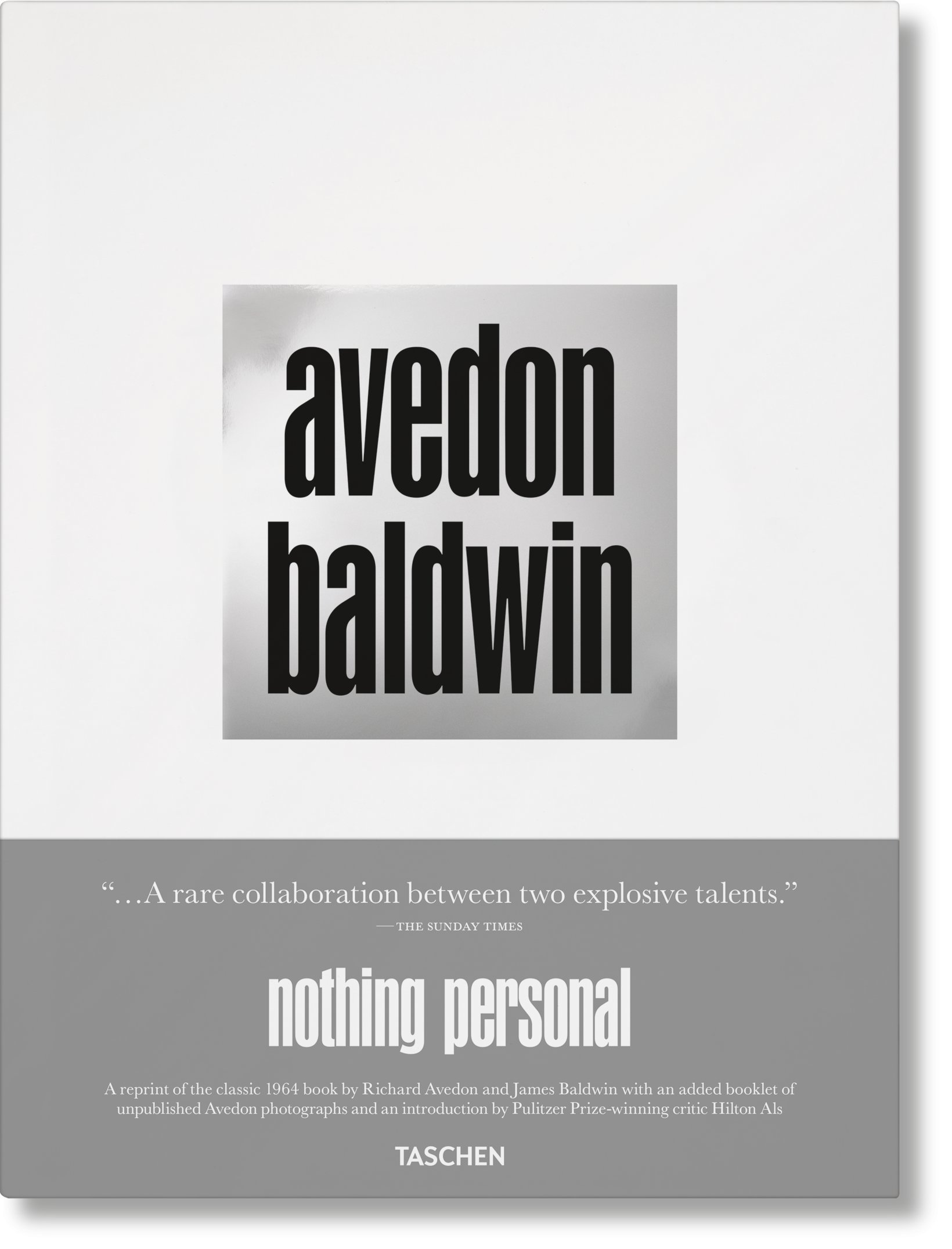
2. Richard Ellman, The Identity of Yeats, Oxford University Press, 1964, 259
3. William Butler Yeats, All quotes from the poem “The Second Coming,” from The Collected Poems of W.B. Yeats, A New Edition, Collier Books, 1989, 187.
Like this:
Like Loading...
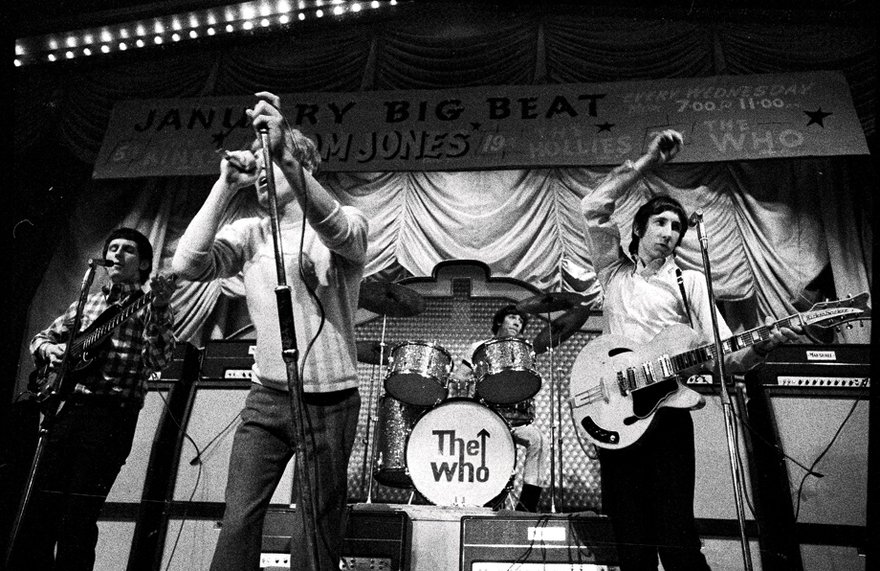






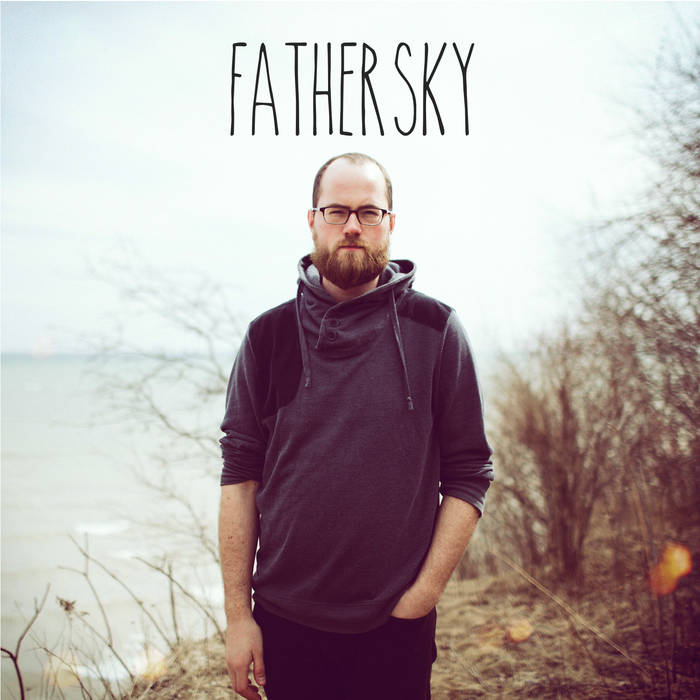
 If a political novice like Donald Trump can become president
If a political novice like Donald Trump can become president